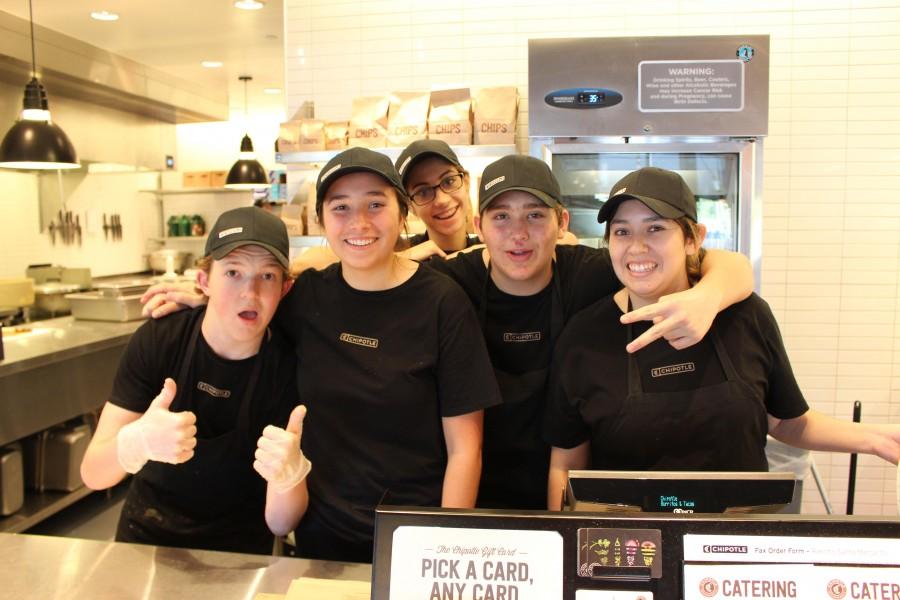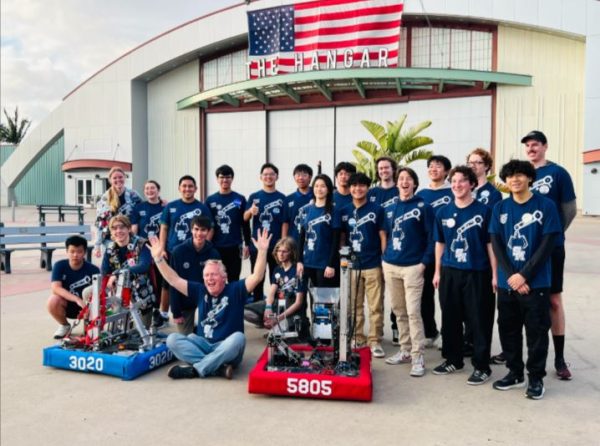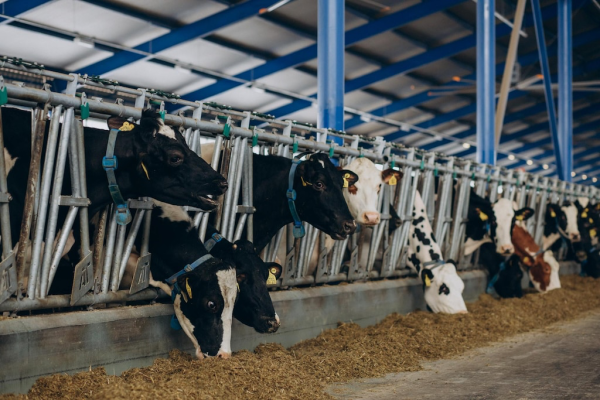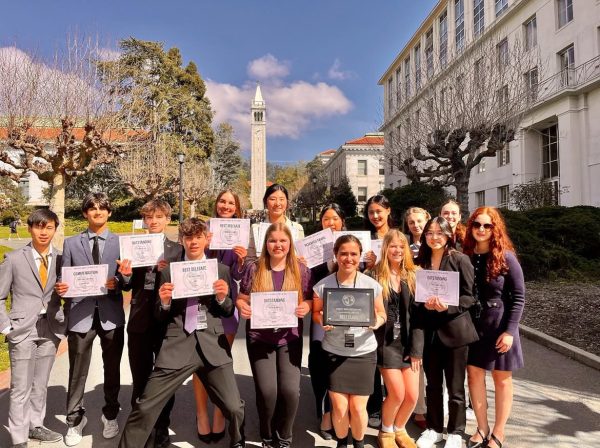Fight for food safety
SMCHS employees working at the new nearby Chipotle must abide to recent policy changes regarding food safety.
After the anticipated wait, Chipotle has finally come to Rancho Santa Margarita. The restaurant opened its doors on Feb. 11 in Plaza El Paseo, offering jobs to two seniors, Noelle Bannigan and Lillie Lustig.
“Now that college apps are done, I’ve had a lot of extra time so I wanted to get a job,” Lustig said. “I really like working at Chipotle because it is a very fast-paced environment. With people coming in all day, there’s always something to do and time definitely goes by fast during rush hour.”
Additionally, with the chain’s new establishment came new health code protocols. In 2015, after more than 20 years without major food safety issues, Chipotle experienced various outbreaks of food-induced illnesses.
The Norovirus spread among Chipotle customers in Simi Valley, C.A. and in Boston, M.A. Salmonella cases were associated with a batch of tomatoes served in 22 Chipotle restaurants in Minnesota and Wisconsin. Recently, the E. coli outbreak affected California and 10 other states. These incidents reportedly infected a total of 510 customers.
“Since our store opened after the food borne illness crises, Chipotle had already developed and implemented new policies,” Lustig said. “One thing that they changed is the dicing of tomatoes. Some of the salmonella cases had ties to the tomatoes so now Chipotle cuts them in a central location and tests each batch for bacteria. If there is any trace, the whole batch is rejected.”
The new tomato policy hasn’t been the only change. All lemons, limes, jalapeños, onions and avocados now go through a process called blanching—being submerged in boiling water for five seconds—which reduces germs on their outer layer. More stringent policies include intensive sanitizing protocols for all restaurants, and weekly inspections to ensure that food safety is up to code.
“The crew that currently works for this location was trained for five days before we opened,” said RSM General Manager Chandra Soroka. “[Their training] not only involved how to work at Chipotle but also the importance of [food] safety in every aspect and procedure. Chipotle’s two main focuses right now are Food Safety and Customer Service so our mission was to make sure they were confident in that.”
As a result of the current outbreaks, cleanliness of food products has been top priority in each Chipotle restaurant in the United States. In order to ensure that all ingredients are handled and prepared with safety in mind, Chipotle incorporates these new policies with suppliers and chain employees.
“We have to wash our hands every top of the hour and somewhere between five and six times in between,” Bannigan said. “We use this new sanitizer to clean all surfaces and dishes. After washing our hands we have to use hand sanitizer and we change our gloves after every single station.”
Concerns over the restaurant’s sanitation levels remain. Despite continued inquiries about Chipotle’s food safety, Soroka holds firm to the strength of employee training and hygiene within the RSM chain.
“Everyone should feel more than safe to eat at this location,” Soroka said. “My crew might be new and still learning everyday but if there’s one thing they know like the back of their hand it’s food safety. As the General Manager, I ensure every day that the food we serve is safe and up to Chipotle’s high standards.”
To learn more about the new safety protocols being taken by Chipotle restaurants internationally, check out: http://chipotle.com/foodsafety.











